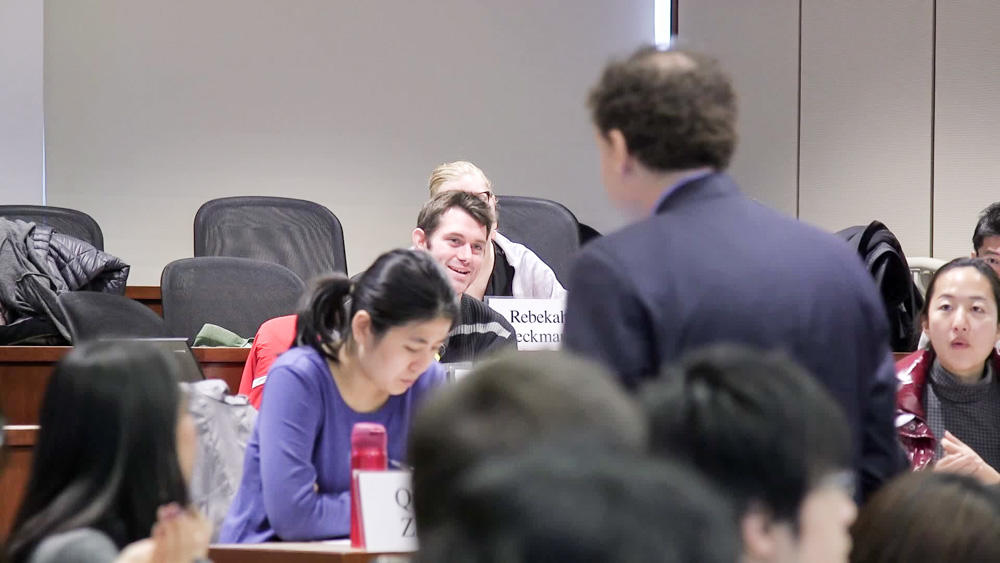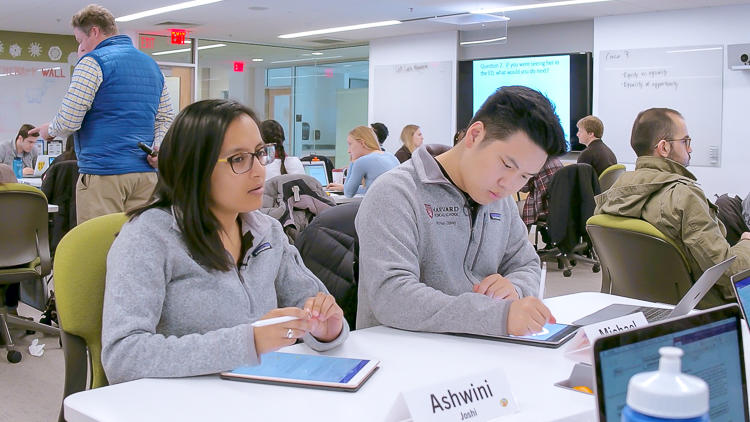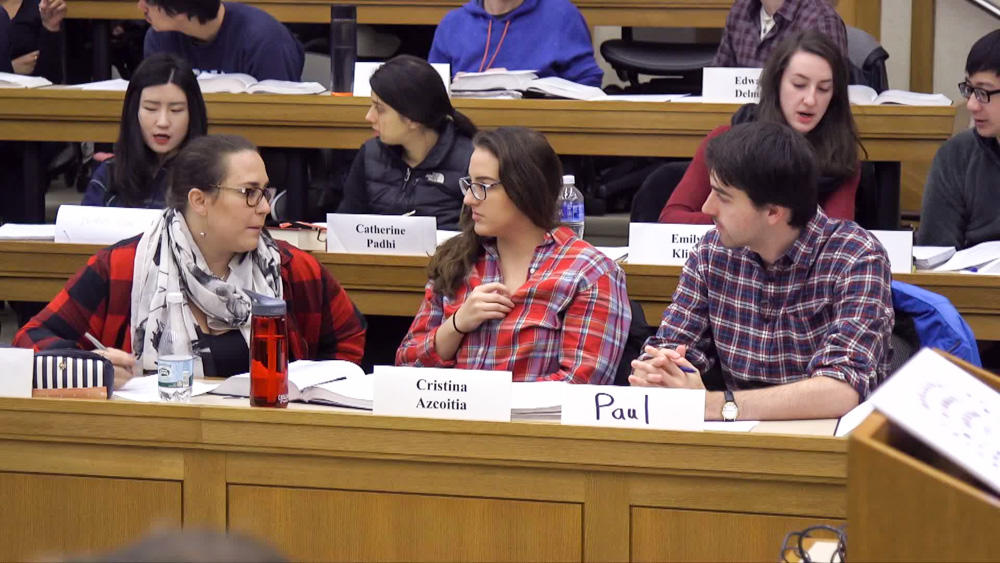We all know the image: Stressed, fearful students trickle into a silent exam hall, all tired from cramming from the night before. But as Eric Mazur notes, stress is not conducive to deep and meaningful learning. In fact, the stress of exam culture often means that students only study for tests and then forget what they learned soon after. To flip this script, Mazur and his teaching team have instituted two stage exams. In the first stage, students work individually; but in the second stage, they share answers with each other, discussing and debating until they find the right answer. This not only forces students to deeply engage with the material, justifying themselves and learning from others; but it also decreases stress and celebrates learning.
Creating Assessments with Individual and Collaborative Components
Instructor
Eric Mazur, Balkanski Professor of Physics and Applied Physics
Student Group
Undergraduate
School
School of Engineering and Applied Sciences
Course
AP50 Physics as a Foundation for Science and Engineering
Group Size
60 students
-
In two-stage exams, make sure that questions are difficult enough so that no team has a local “expert” who is relied upon overwhelmingly during the team round. The point is not to supplant the teaching team with more knowledgeable students but rather to foster a collaborative environment where students authentically work together in order to solve problems.
-
While two-stage exams are easier when conducted digitally, it is possible to do them without technology by using scratch cards. During the team round, students scratch the answer that they select; only the correct answer will have a mark beneath.
-
Allow students to celebrate their successes. While this can get noisy, it really de-emphasizes the traditional exam environment and makes learning fun and memorable.
- Jang found that in collaborative or two-stage exams all students performed better after working with peers. Interestingly, they also found that about half of the teams where individual members did not have the correct answer eventually reached the correct answer after collaborating (2017).
- Learn TBL (Team-Based Learning) provides a practical guide explaining the procedure of two-stage exams, also called readiness-assurance test or readiness-assurance exams.
- The University of British Columbia's Carl Wieman Science Education Initiative provides a video demonstrating one example of a two-stage exam in a large 300-student classroom.




